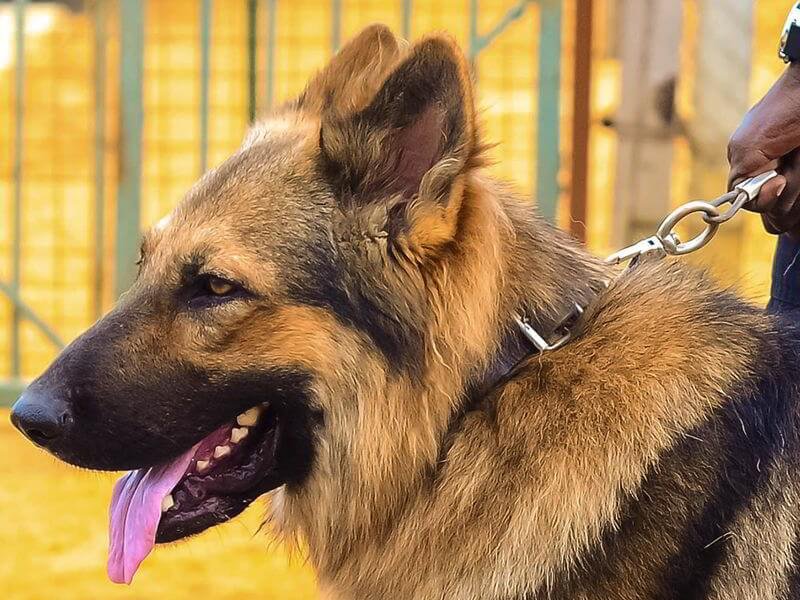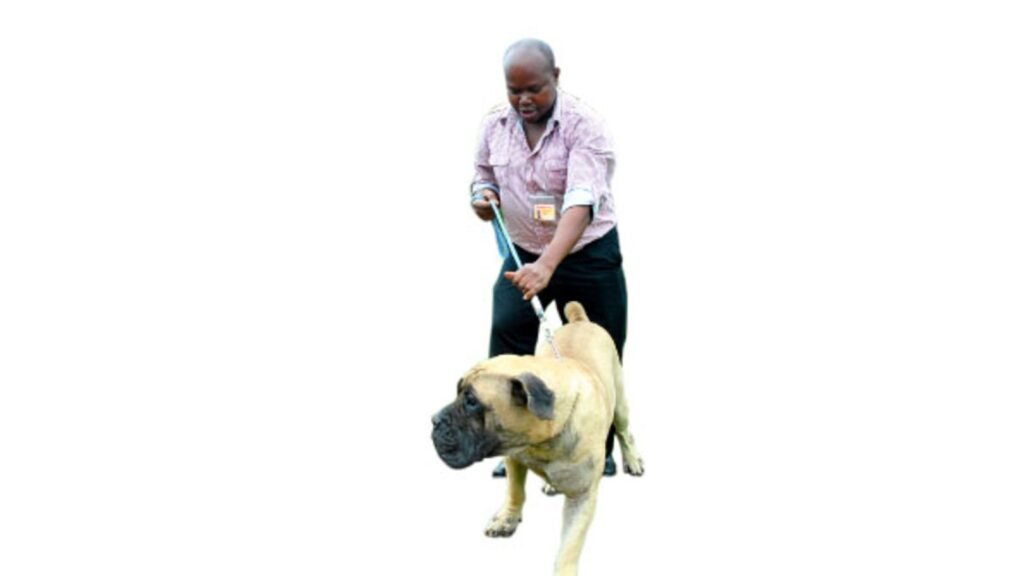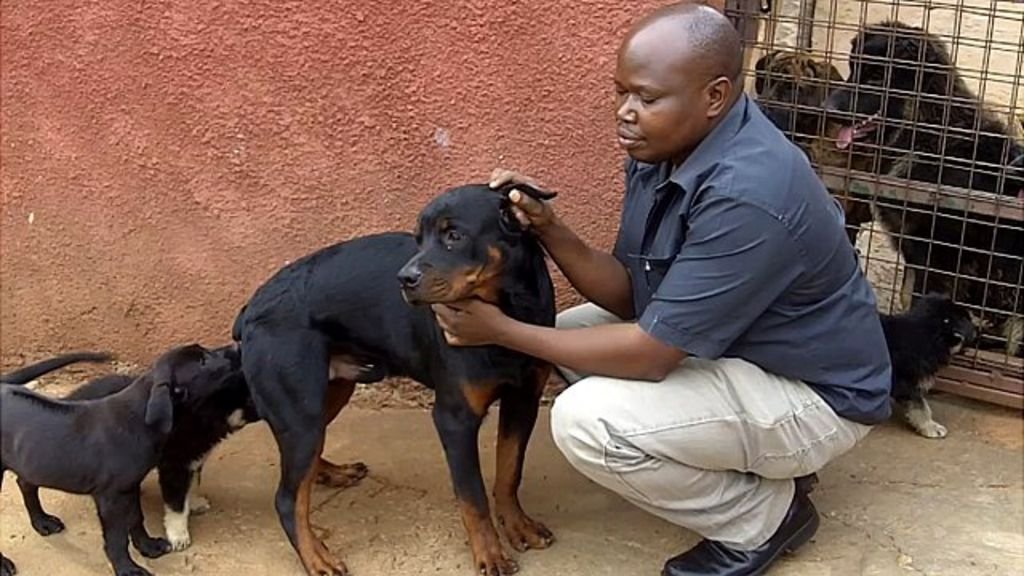With the $700 price tag he charges for a puppy, you would think that Alex Nkwanga would be short of buyers.
But with more than 14 breeds of dogs from Russia, Germany, South Africa, the United Kingdom, Hungary and India, Nkwanga has carved a niche for himself among Uganda’s dog lovers.
When I visited his farm in Namugongo, a suburb on the outskirts of Kampala, the puppies were sold out, but every few minutes he got phone enquiries from prospective dog owners.
Nkwanga is the only registered dog breeder in the region for some types like the giant Caucasian mountain dog and St. Bernard’s.
He receives visitors from Kenya, Tanzania and Rwanda who come to tour his farm, learn about dogs and, of course, buy puppies.
Other breeds at his farm are the English Mastiff, Great Dane, Boerboel, Rottweiler, Doberman Pinscher, English bulldog, Leonberger, Bullmastiff and the German Shepherd.
Buyers are spoilt for choice. Following the success of his Uganda chapter, Nkwanga, who has been participating in dog shows in Nairobi every year, plans to open branches of his Savannah Giant Dogs in Kigali and Nairobi.
He also wants to start dog shows in Uganda before the end of the year.
In a sense, Nkwanga’s success with dogs is a pointer to the returning affluence of Ugandans.
Not so long ago, purebred dogs were the preserve of a small privileged class in Uganda.
In his autobiography, Desecration of My Kingdom, King Mutesa II makes reference to the 12 dogs that lived in his palace, two of which were German Shepherds.
As British influence in Uganda grew in the late 1800s and early 1900s, chiefs, affluent royals and other people who had regular contact with Europeans began to adopt their values.
They started keeping dogs for companionship, instead of for hunting.
German Shepherds were the first breed to be introduced and have been in Uganda for at least 100 years.
Nkwanga’s grandfather, a chief in the past Kabaka government, was one of the few proud owners of a German Shepherd.
He used to drive around with it in his car, much to the dismay of local people.
But that was before the sun began to set on Uganda. In 1966, former Prime Minister Milton Obote made history in a not so pleasant way.
He staged Uganda’s first coup and overthrew the country’s first president, King Edward Frederick Mutesa II.
This changed Uganda’s history for the next couple of decades.
Coups and countercoups were to become the norm of changing governments in the country.
The tables were constantly turned on Uganda’s small privileged class and many could not afford to maintain luxurious lifestyles.
Designer dogs, once a treasured companion, became more of a liability than an asset in the house.
The 1970s ushered in tough times for Ugandans. Economically, it was a trying era.
With the slow degradation and collapse of institutions, industries, firms and companies, the middle class also dwindled.
Large affluent Asian families like the Madhvanis (who owned some of the first purebred German Shepherds) were expelled.
Many foreigners left as foreign firms were nationalised.
Many elite and educated Ugandans fled to neighbouring Kenya and other countries to ply their trade there.
For those who remained, priorities changed. Inflation was at an all time high and, as money became virtually useless, many Ugandans turned to basic subsistence.
It was inconceivable to try to buy a dog, let alone sell one. Dogs were more valuable to hunters and herdsmen to help find food but were a liability to the small urban population.
The 1980s were even worse. Uganda’s presidents seemed to be playing musical chairs and none stayed in the seat for long.
Uganda had six different presidents in a span of six years.
As many Ugandans struggled to survive, ostentatious trends naturally died out.
Even the police force canine unit had only a few dogs serving the whole country. Those who had purebreds gave out the puppies free of charge to a few lucky people.
When peace and stability finally became a reality in the mid-1980s, relief and development agencies started settling in to help the country get back on its feet.
This saw an influx of expatriates into the country and many of them arrived with an important part of their families — their beloved hounds.
After Ugandans got over the initial shock of seeing pooches so spoilt and pampered, they quickly adapted. The value and appreciation for dogs increased.
Soon the few expatriates, whose dogs were giving birth to puppies, couldn’t satisfy the demand for purebreds.



